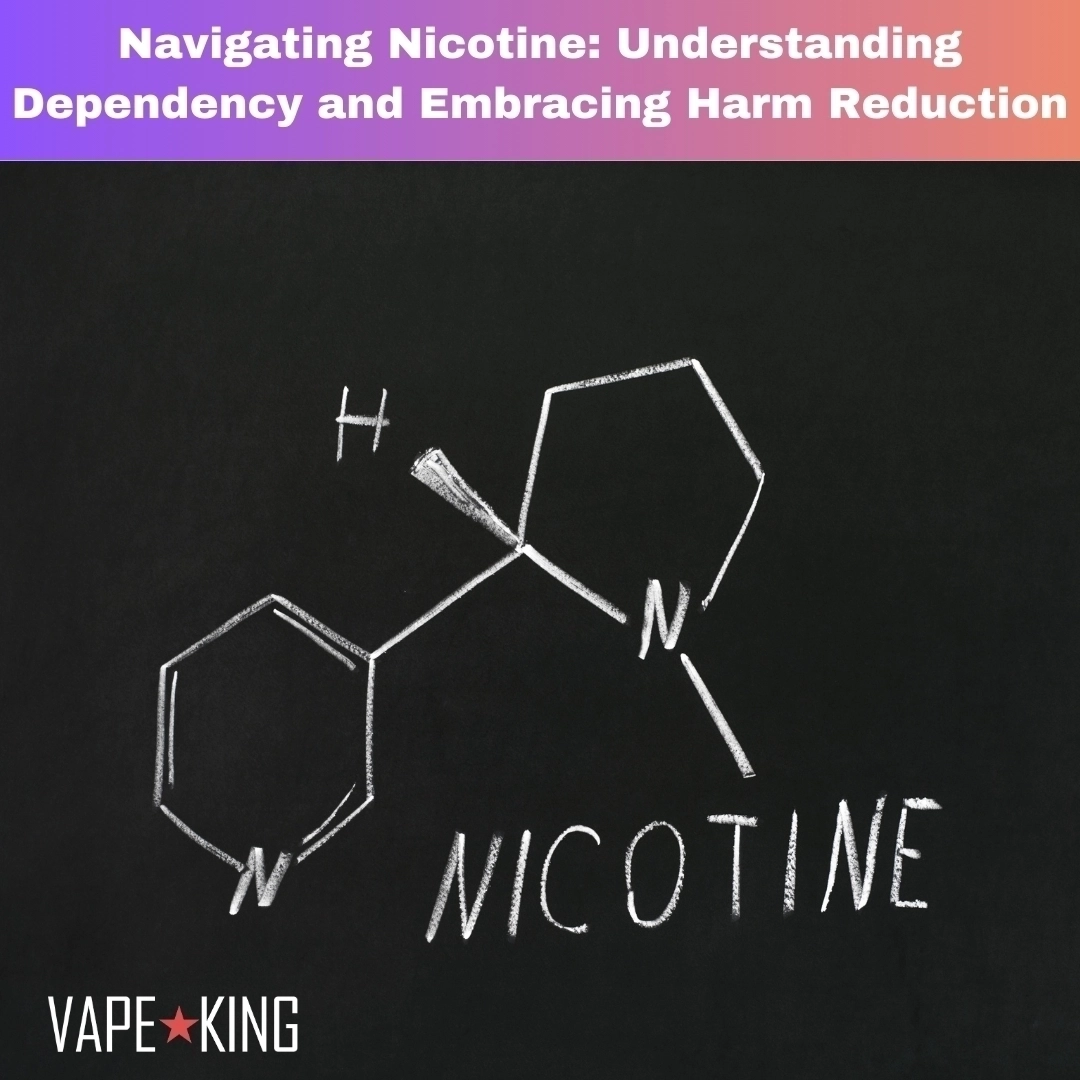Navigating Nicotine: Understanding Dependency and Embracing Harm Reduction

Nicotine, a stimulant present in various tobacco and vaping products, has long stirred controversy and debate. While many strive to quit nicotine use due to health concerns and societal pressure, breaking free from its grasp can prove challenging, if not impossible, for some. In this blog, we will delve into the intricate reasons why individuals may struggle to quit nicotine and examine the implications of this enduring dependency.
The Nature of Nicotine Addiction: Nicotine addiction is a complex phenomenon influenced by biological, psychological, and social factors. At its core, nicotine affects the brain by triggering the release of dopamine and other pleasure-associated neurotransmitters. With repeated exposure, the brain adapts, making it harder for individuals to resist cravings and maintain abstinence.
Furthermore, the ritualistic and social aspects of nicotine use reinforce addiction. Smoking or vaping often becomes intertwined with daily routines and coping mechanisms, solidifying its hold. Breaking free from these habits requires not only willpower but also comprehensive support and resources.
The Role of Harm Reduction: Recognizing that quitting nicotine altogether may not be feasible for everyone, harm reduction strategies offer a pragmatic approach. From nicotine replacement therapies to vaping as a less harmful alternative, harm reduction aims to minimize risks associated with nicotine dependence. Public health authorities like Public Health England endorse vaping as a valuable harm reduction tool, citing evidence of its safety compared to traditional smoking.
Understanding Individual Choice: The decision to quit nicotine is deeply personal and influenced by various factors unique to each individual. While some may quit successfully, others navigate a more complex path with periods of abstinence, relapse, and experimentation with harm reduction methods. Empathy and understanding are crucial in supporting individuals on their journey toward healthier outcomes.
Conclusion: Quitting nicotine can be daunting due to diverse biological, psychological, and social factors. Embracing harm reduction principles and fostering understanding of individual experiences can support individuals in their pursuit of healthier lives. Regardless of where one is on their nicotine journey, personalized support and informed choices are key to fostering positive outcomes.
Disclosure: The opinions expressed in this blog post reflect the author's personal views and do not necessarily represent the opinions or policies of any organization. Readers are encouraged to conduct further research and form their own opinions on the topic.
No posts found
Write a reviewRecent posts
- WHO Issues Warning Regarding Falsely Labelled Propylene Glycol: A Caution for E-Liquid Manufacturers
- Salvaging a Wet Vape: Tips for Reviving Your Device After Water Exposure
- Discover the Top 10 Disposable Vapes in South Africa
- Unveiling Australia's Flawed Vaping Policies: A Catalyst for Illicit Markets

